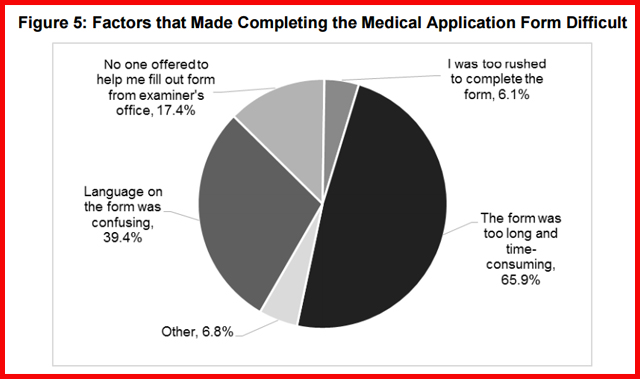Senior Reporter
Quality of Driver Medical Examinations Is Inconsistent, ATRI Reports
 ATRI
ATRIThe quality of truck and bus driver physical exams administered by certified Federal Motor Carrier Safety Administration medical examiners is inconsistent, according to new analysis by the American Transportation Research Institute.
The analysis, done in collaboration with the Mayo Clinic, was based on a survey of 900 commercial drivers, 300 motor carriers and 1,200 certified medical examiners. It was intended to assess FMCSA’s requirement that examiners take a training course and test before being permitted to do exams that are required every two years for drivers.
The list of certified examiners now numbers more than 52,000, said Larry Minor, FMCSA associate administrator for policy.
The registry was designed to improve the Department of Transportation physical exam process and ensure that medical examiners understand FMCSA regulations and guidance for issuing medical certificates. The analysis suggested the process is falling short of some of its goals.
The ATRI survey concluded that a majority of bus and truck drivers said they are paying more for the exams but not seeing commensurate improvements in their quality since the National Registry of Certified Medical Examiners system requiring certification of all medical examiners went into effect in 2014.
“The data show a polarity in quality of medical examiners,” said Dr. Clayton Cowl, chairman of the Mayo Clinic’s Division of Preventive, Occupational and Aerospace Medicine. “Those examiners who are performing only minimal examinations may have received substandard training or are not taking their role seriously.”
The survey also showed that 6% of drivers reported spending 20 minutes or less with their examiner, with 6.5% spending 10 minutes or less, an insufficient time to complete all required processes of a DOT physical, ATRI said.
“Drivers certified by chiropractors were more likely to have important medical checks omitted,” according to the analysis.
Among the 5.9% of drivers who were not issued a medical certificate on the day of their physical exam, 22.6% cited having a medical condition that required treatment before certificate issuance as the reason.
In addition, the study showed that motor carriers still have significant concerns related to the medical certification process, including requests by medical examiners for additional medical documentation causing certification delays, driver confusion about how regulatory changes affect the ability to hold a valid medical certificate, and concerns with the competency of medical examiners. Nearly 50% of motor carriers reported that they specify which medical examiner their drivers see to ensure medical exam quality.
Less than 1% of carriers reported no major concerns with the medical certification process.
The analysis also concluded that the ability of drivers to find a medical examiner close to where they live may be more challenging in the future because 15.3% of the examiners reported that they have quit or plan to quit performing DOT physicals.
“The inconsistency in quality of exams provided our drivers creates real challenges for us as a fleet,” Victor Hart, director of safety for DOT Transportation, said in a statement. “Where, in one terminal location, a driver may be required to undergo extensive tests and provide additional documentation prior to getting a medical certificate, drivers in other locations are expedited through with cursory exams.”

